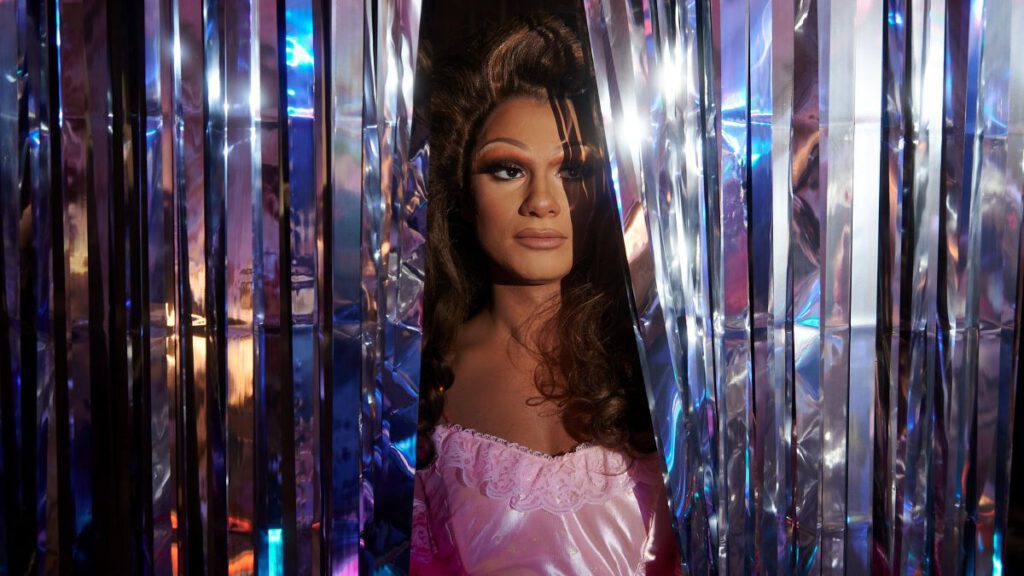Global films know how to milk a scene and make you feel like you are right there in the moment. “Layla,” “Malu “and “Reinas” took the World Dramatic stage at Sundance, and left viewers in a milk hangover. “Layla,” a must-see film about an Arab drag queen, will have you ready to perform colorfully under clouded London skies. “Malu” is the intergenerational spotlight that takes you on a rollercoaster ride through time, space and connectedness. “Reinas” rolls out a royal red carpet for politicians, community members and an absent father. From the United Kingdom to South America, these three films bring warmth and love-everlasting to your heart space.
“Layla,” directed by Amrou Al-Kadhi, is timely, sexy and filled with fantasy. The main character, Layla, is a Palestinian queer drag queen with a sentimental spirit. The intentional splashes of color make this rainbow-slide of a film, whimsical to go down. Layla is vivacious. We witness them kick corporate LGBTQIA+ “solidarities” in the ass and watch them fall in love with their self-exposed identity.
An Arab wedding is where we witness their masc-presenting identity let loose in front of assumed shame-filled family members. We see them expressing themselves with woman-like dances that are traditionally not performed by men. Pronouns are presented as dependent upon the audience, which is a commonplace phenomena of today. Layla colorfully travels through the “in-between” searching for a place to settle.
There are erotic moments that you cannot turn away from. The intimacy is potent. We are healing with Layla as they go through the leaps and hurdles of getting comfortable with who they are, in front of anybody. They want to be reassured by their people, and they eventually get comfortable with the outright truth. The cast is just as colorful as the film, encompassing the Black trans community, as well as the Palestinian one. We live in a war-torn world right now, and Layla is a clear depiction of what could be if we choose to embrace the beauty of our common humanity.

Narcissism, theatrical personalities and a case of mad cow disease, will stir you up while watching “Malu”. Based in Brazil, Malu, her mother and her daughter endure intergenerational curses and realizations together. While in the garden, watering a bromeliad plant together, grandma mutters that the plant needs suffering in order to flourish. We watch these characters do exactly that through divorce, poverty, sexual abuse and stagnation.
Malu led the life of an actress before becoming stuck on her dream of creating a theater-based cultural center. She witnessed the drugs, sparsity of gigs and the life of being an on-the-road star. The stories of her past life are her pride and joy. None of her idealistic plans came true, post-acting. She is divorced, lonely and leading a one-woman revolution. Malu’s mother is fed up with her marijuana habit and insists she quit. Malu allows a rent-free drag queen to stay in one of the spare rooms of her house, and he is the sparkle of the film. He tackles his African roots, loving personality and violence against gays in Brazil. “I will not let your evil kill my poetry,” he says to the Catholic-crazed grandma.
Malu is hopeless and eccentric, she sings, “if I am so incomprehensible, my God is more.” Her daughter shouts at her, “CONNECT,” and “get off the stage,” which Malu is incapable of doing because she lives in the realm of theater. After receiving an ultimatum from her daughter that included seeing a therapist, Malu is left to wilt. The film offers insight into the theater world of Brazil and seeks to expose intergenerational trauma and healing. “Malu” is not your typical film, but its ability to highlight a woman who lives for drama, within a dramatic film, may trigger interest.

It is 1990 in Peru, and inflation is doubling and tripling the price of groceries. A long-standing struggle in Peru, inflation starts to affect the upper echelon. Aurora and Lucía, the “Reinas” in the film, are sisters who live a privileged life, but their father has been absent. Their mother plans to take them to Minnesota to escape the ills of Peru and to start a new life, but she needs their father to sign the international travel consent form. The father, Carlos, comes around after being in the “jungle” fighting crocodiles. We assume the father has been fighting as a revolutionary against the political inflationist regime, but that is not directly said.
There are protests, mandated curfews and shortages due to inflation. Carlos, also known as “El Loco,” for his outdated way of doing things (trading a tire for swimsuits), is distant at his initial introduction, but grows closer to his daughters as he spends more time with them. He tells his youngest daughter that he is a “secret agent” for the government, but he looks impoverished and only brings kilos of sugar as currency to share with the family, so she doubts his governmental position. Momentous joy is brought to viewers as the father finds ways to bring love back into his relationships with his daughters. The growing desire to not leave Peru develops, as the family reconnects, but the political climate may leave them no choice but to separate. The community-centered film is worth watching to take a peek into Peru’s inflation history and learn about its gut-wrenching effects on family dynamics.












